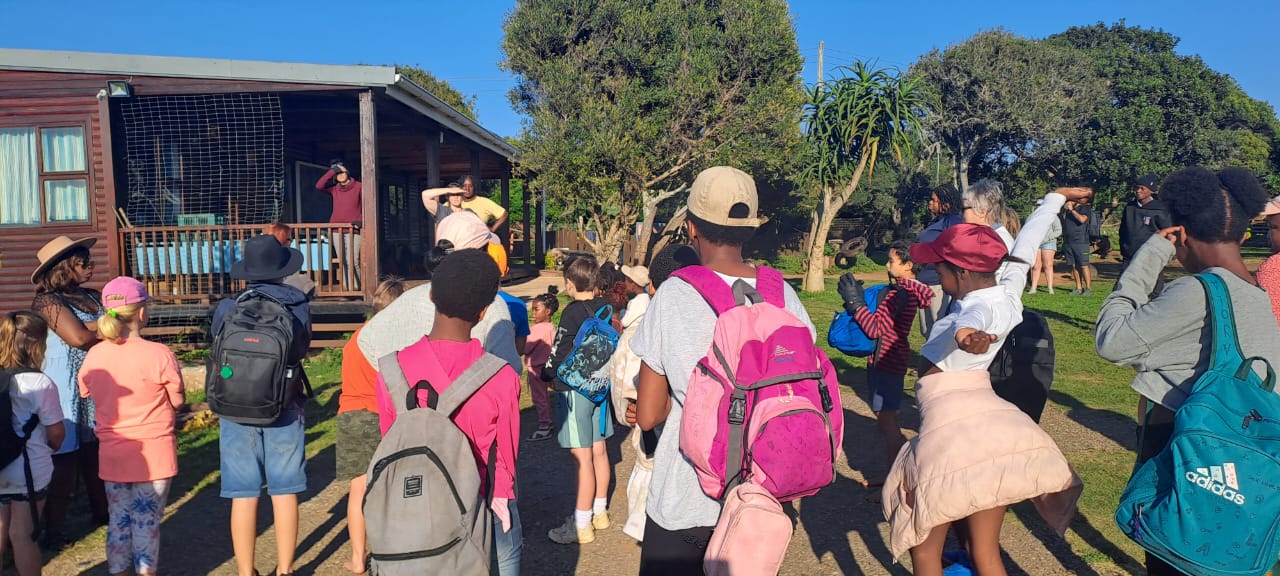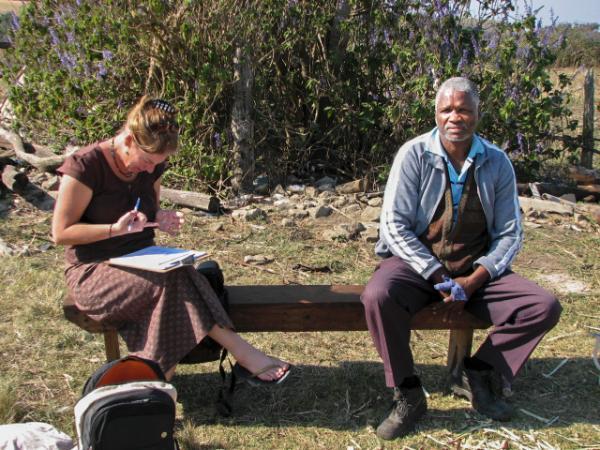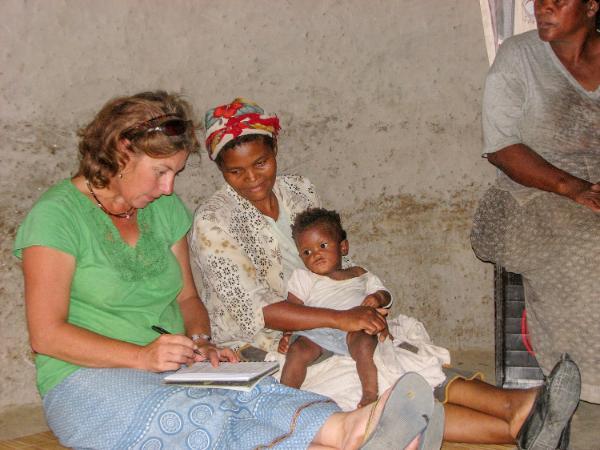These are the studies conducted by some of our members in the department in the year 2023:
Sorice, M. G., Rajala, K., Brown, B. L., Masterson, V. A., & Fuhlendorf, S. D. (2023). Relationship with the land as a foundation for ecosystem stewardship. Frontiers in Ecology and the Environment. https://doi.org/10.1002/fee.2651
Zwane, B., Bamford, M., van Wijk, Y., & Wurz, S. (2023). An analysis and environmental interpretations of wood charcoal from the Later Stone Age deposit at Klasies River cave 1, Tsitsikamma Coast. South African Journal of Botany, 160, 147-156. https://doi.org/10.1016/j.sajb.2023.06.059
Stories, power and narration
Two Anthropology Masters students - Emma Dickson and Ethan Sebakwan, both supervised by Dr. Dominique Santos support a local history project on shipwrecks at Bushwillow Primary School in Kenton-On-Sea. They looked at how stories are made and who has the power to tell them.

Ecology, environment, circulations, society
Social and historical understandings of the natural world, and human positioning in it are vital to any project that seeks to contribute to a more nuanced understanding of current economic, environmental and social crisis, and the potential to respond to it. We focus on the complex and dynamic interactions between people and the physical environment. Ideas of circulation are explored in relation to commodities, ideas, practices of work and ecological adaptations. We explore how humans manipulate and transform eco systems, to produce interactions which shape social, economic and political relations and institutions. Our expertise ranges from understanding micro ecological interactions between humans and their proximate environment to the creation of urban ecological landscapes.
Staff in the department supervising students in this area are Associate Professor Michelle Cocks, Professor Shankar Aswani, and Ms Shabnam Shaik
How do people use creative, embodied processes to reflect on, reproduce and critique, the social and political conditions in which they find themselves? Corporality involves multiple forms of expression of, and through, the body within social worlds, and how these worlds act on the body to produce it. We are interested in the role of ritual and creative spaces of liminality, of time-out-of-time, in which selves are re-fashioned, new social worlds imagined, old social worlds consolidated, traditions invented and how these play out across the transitions of the life course, and in relationship to the more-than human realm. Key to this node is an interest in the intersections of technologies of power with individual and social bodies.

Staff in the department supervising students in this area are Dr Patricia Henderson, Dr Dominique Santos, Dr Janet Hayward and Ms Shabnam Shaik
Heritage is fundamental to humanity’s pastoral care of the past, and intrinsic to the experience of the present, yet its parameters are seldom uncontested, and are sites of dynamic re-definition as political, economic and environmental imperatives act upon it. We are interested in the ways in which continuities and change are in relationship and interaction with one another as social formations and understandings of the cultural form and fall apart. Our courses explore indigenous knowledge systems, cultural landscapes, historical ecologies, museum practices, digital practice and the complex intersections of intangiable and tangiable heritages. We approach key ideas in biological anthropology to explore the human-animal continuum, and disrupt colonial narratives of evolution, progress and development to re-centre the Global South.
Staff in the department supervising students in this area are Assoc Prof Michelle Cocks(HOD), Prof Shankar Aswani, Dr Janet Hayward and Dr Dominique Santos
How do social, cultural and structural factors shape expressions and experiences of health, sickness and well-being? We locate these in cross-cultural perspective, drawing on the biopsychosocial model and incorporating multiple cosmologies of the mind and body. We explore power and the politics of knowledge and practice to appreciate and understand the roles played by cultural schemas and social and physical environments in shaping one’s experience of disease and illness. The position of the body and how it is read as sick, well, disabled, or healthy, and how this is intimately tied into discourses of power. Specific theoretical focus is placed on critical medical anthropology, biological approaches, ethnomedicine, medical ecology and applied medical anthropology.

Staff in the department supervising students in this area are Ms Shabnam Shaik, Dr Janet Hayward
Last Modified: Wed, 22 Nov 2023 02:08:20 SAST